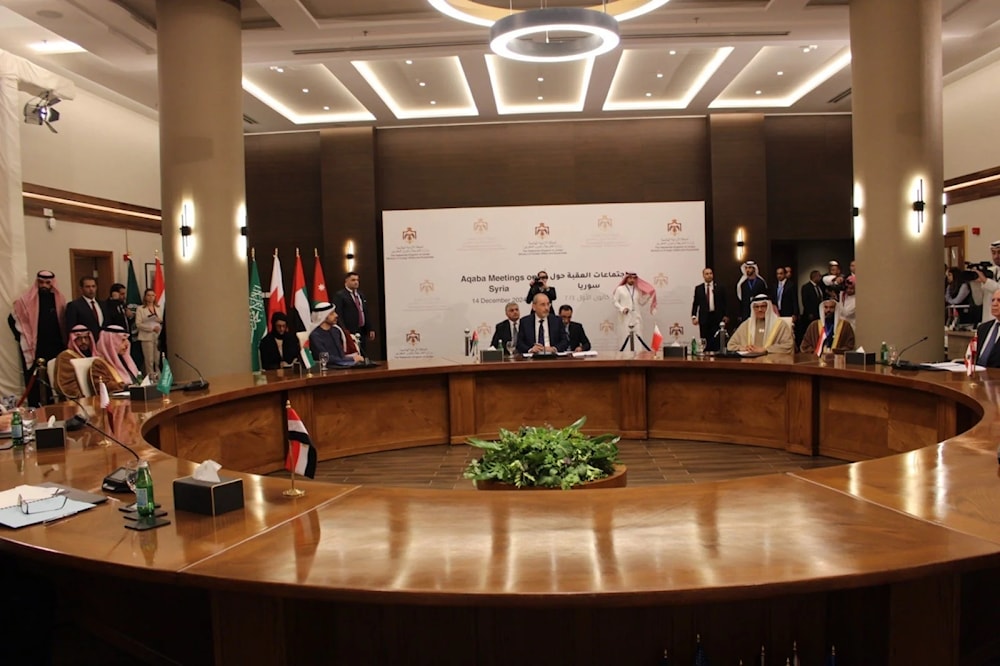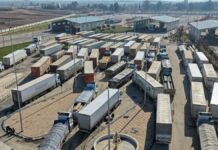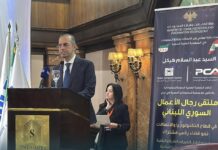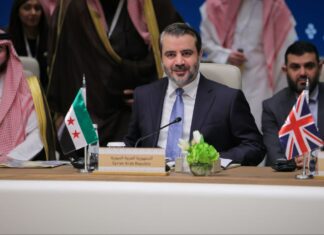
Foreign ministers and representatives from Arab and Muslim nations, along with UN and US officials, convened in Aqaba on Saturday to discuss Syria’s future following the overthrow of Bashar al-Assad’s regime. The meeting demonstrated the urgency of a peaceful political transition, regional stability, and humanitarian support for the war-torn country.
Inclusive Transition Paramount
In a joint statement, leaders emphasized the need for a “peaceful, inclusive, Syrian-led political transitional process” that would be representative of all political and social forces in the country. They called for the establishment of a transitional governing body to oversee free and fair elections under UN supervision, in line with Security Council Resolution 2254.
“The rights of the Syrian people in all their components must be respected, without discrimination based on race, sect, or religion,” the statement read. “Justice and equality for all citizens must be ensured.” Leaders also highlighted the importance of combating terrorism and preserving Syrian state institutions to prevent the country from sliding into chaos.
The President of the Iraqi Kurdistan Region, Masoud Barzani, responded to recent statements from CMO leader Ahmad al-Sharaa, which described the Kurdish people as “part of the homeland and partners in Syria’s future.” Barzani welcomed this vision, viewing it as a step toward correcting historical wrongs and ending injustices against the Kurds in Syria. He emphasized the importance of Kurds, Arabs, and all Syrian components working together to build a free Syria.
In a sign of warming ties, several Arab and Muslim states have reopened their embassies in Damascus, including Turkey, which had been a major player in Syria’s conflict. Turkish Foreign Minister Hakan Fidan called for an inclusive political process to shape Syria’s next government. EU member states are also considering reopening their embassies in Syria, according to reports from Anadolu Agency, as they monitor developments closely.
Concerns Over Extremism
The discussions revealed differing views on the composition of Syria’s future leadership. Arab diplomats expressed concern over the potential dominance of Islamist factions, with countries like Jordan, the UAE, and Lebanon opposing such a scenario. Meanwhile, Turkey, Qatar, and Saudi Arabia appeared more open to the inclusion of groups like Hayat Tahrir al-Sham (HTS) in the transitional government. “The formation of a balanced governing body is critical to Syria’s stability and regional security,” one diplomat noted.
Israel and Iran
Arab ministers condemned Israel’s recent military incursions into the buffer zone in Syria, as well as its airstrikes on various military sites. They labeled the actions a violation of international law and demanded the withdrawal of Israeli forces from Syrian territory.
The meeting also addressed concerns about Iran’s past influence in Syria. Al-Sharaa stated that while Iranian expansion in Syria had been curtailed, the focus now was on managing international relations to ensure stability.
Considering the Future
Qatari Prime Minister and Foreign Minister Muhammad bin Abdulrahman bin Jassim Al Thani reaffirmed Qatar’s commitment to supporting the Syrian people. “The State of Qatar will remain steadfast in its support for the brothers in Syria and in supporting all regional and international efforts,” he said.
The ministers vowed to communicate with the international community to build a unified stance on supporting Syria’s reconstruction and political transition. They stressed the need for robust international cooperation to help Syria achieve peace and rebuild a state based on the rule of law and governance.
The Aqaba meeting marks a significant step in defining the next phase of Syria’s future. As nations navigate their positions on Syria’s transition, the stakes remain high for the country’s recovery and its role in the region. The leaders’ final statement expressed cautious optimism while acknowledging the immense challenges ahead. “Now is the time to build a future that the Syrian people deserve – one of peace, justice, and equality,” the statement concluded.








